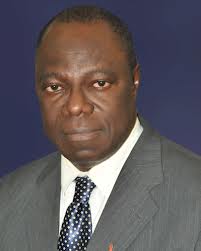BY PRESIDENT GOODLUCK EBELE JONATHAN, GCFR OF THE FEDERAL REPUBLIC OF NIGERIA AT THE ABUJA +12 SPECIAL SUMMIT OF THE AFRICAN UNION ON HIV/AIDS, TUBERCULOSIS AND MALARIA, ABUJA. 15 JULY, 2013
 On behalf of the Government and good people of the Federal Republic of Nigeria, it is my great privilege and honor, to warmly welcome you all to Abuja, our capital city, for this landmark Abuja +12 Summit of the African Union, on HIV/AIDS, Tuberculosis (TB), Malaria and other Related Infectious Diseases.
On behalf of the Government and good people of the Federal Republic of Nigeria, it is my great privilege and honor, to warmly welcome you all to Abuja, our capital city, for this landmark Abuja +12 Summit of the African Union, on HIV/AIDS, Tuberculosis (TB), Malaria and other Related Infectious Diseases.
Your presence here today, soon after we gathered in Addis Ababa for the 50th anniversary celebration of the African Union, signifies the importance of health, as pivotal to the peace, security and development of our continent. Indeed, this Summit connects with continuing coordinated efforts to keep the fight against HIV/AIDS, TB, Malaria and other Related Diseases, high on our regional agenda, and within global attention.
Your Excellencies, it is common knowledge that these Infectious Diseases remain major causes of morbidity and mortality in Africa, and hence pose serious challenges to our aspirations for sustainable socio-economic development. Undoubtedly, across Africa, infectious diseases have not only slowed down economic growth, they have contributed to the depletion of human capital, food insecurity, and high maternal and child mortality.
The Government of Nigeria realizes that HIV/AIDS, Tuberculosis, Malaria and Other Infectious Diseases pose a significant threat to Human and Economic Development. Mother-to-Child Transmission of HIV, Treatment for people with HIV, Polio, Maternal and Child Mortality, and TB incidence are some of the challenges currently receiving attention from the Government of Nigeria.
In the intervening years since the national benchmarks, the Abuja Declaration of 2001, and the United Nations General Assembly (UNGA) Declaration of Commitment in 2006, Africa has against several odds, made significant progress towards reducing incidences of these diseases.
Your Excellencies, Distinguished Ladies and Gentlemen, as commendable and encouraging as these achievements are, our continent is still far from attaining all the targets, to sufficiently secure the well-being of our countries and their future. To consolidate our progress in addressing the heavy burden of these infectious diseases in Africa, we must with increased urgency, develop a stronger, home grown, sustainable health financing framework. We must take ownership of the process, and drive its implementation.
One of the outcomes of the 2001 Abuja Summit on the three diseases was the establishment of the Global Fund by the United Nations and the G8. Since its establishment, the Global Fund has grown to become one of the major funding mechanisms for the three diseases.
We should continue to support the Global Fund to sustain its noble mission. It is in this light that I have accepted to co-chair the 4th replenishment of the Global Fund. I call on all of you to support me to ensure that Africa makes a big statement at the replenishment meeting which comes up in the last quarter of this year.
Against this backdrop, the theme of this Summit, Ownership, Accountability and Sustainability of HIV/AIDS, Tuberculosis and Malaria Response in Africa: Past, Present and the Future is well conceived.
It calls for sustained commitment from governments and leaders across Africa, to sourcing expanded and durable solutions to these diseases. In many respects, this Summit affords us yet another opportunity to address the following:
– To review together, the level of achievement of the set targets of the 2001 and 2006 Summit Declarations;
– To identify gaps, constraints and challenges to the achievement of these Declarations and MDG targets;
– To identify new strategies that will enable a more realistic course of action towards achieving these targets;
– To obtain renewed commitment by African Leaders for addressing these diseases and promoting health and well-being in Africa; and
– To prepare Africa’s common position at global fora such as UNGA.
– Your Excellencies, the time is ripe for a final and concerted solution to these diseases. The human, societal and financial costs of inadequate action or no action at all, will be too grievous to contemplate.
To attain universal access and meet the Millennium Development Goals, we must now do things differently. We must set clear and decisive goals and identify and implement the best adaptable strategies for best and quickest results.
– I strongly advocate that Africa should look inwards in the search for solutions. We must begin to de-emphasize reliance on external funding and importation of essential medicines required for our treatment programmes.
– We must stand in solidarity with one another, be proactive to our health challenges and increase inter-continental scientific research partnerships and development efforts to compliment the various national and regional plans already underway.
– Ownership and Sustainability should form the basis of our next plan of actions. Our goal should be to find local solutions to our challenges, translate planning into implementation, and develop our continent at the pace we desire.
– Without doubt, more funding will be required to achieve these laudable objectives. At the same time, we must un-relentlessly strengthen synergy between government and other stakeholders to reduce duplication of efforts and waste of resources.
– Your Excellencies, I pledge Nigeria’s full support for the endeavor. Only recently, Nigeria along with other African countries adopted the African Union Roadmap on Shared Responsibility and Global solidarity for HIV/AIDS, TB and Malaria, based on the three pillars of Innovative Financing, Universal Access to Medicines and Diagnostics, and Committed Leadership and Governance. We will continue to play an active role in vigorously supporting the objectives of the Roadmap and their beneficial advancement.
– Nigeria’s commitment is further underlined by a special purpose programme which we have developed to accelerate the implementation of key interventions with respect to HIV/AIDS.
– This programme, which we have tagged the President’s Comprehensive Response Plan (PCRP), will help us to bridge existing service gaps, address key financial, system and coordination challenges, and promote greater responsibility and accountability for HIV/AIDS responses, at national and sub-national levels.
– The plan is targeted at achieving universal access to the prevention, treatment, care and support to all Nigerians living with HIV/AIDS.
– Your Excellencies, to further demonstrate our administration’s commitment to this fresh initiative, I will formally present thePresident’s Comprehensive Response Plan (PCRP) on HIV/AIDS for Nigeria at the end of this speech.
– In demonstration of our commitment to the Abuja Declaration 2001, I have also directed the immediate development of a new and creative framework for sustainable financing of health to meet the targeted objectives.
– I cannot conclude this address without acknowledging the important contributions of our development partners to this fight against infectious diseases. I thank all UN Agencies, the Global Fund, and the United States Government, the UK Department For International Development (DFID), the Canadian International Development Agency (CIDA), Japan International Co-operation Agency (JICA) and other bilateral and multilateral agencies, for their immense support for HIV/AIDS, Tuberculosis and Malaria interventions across Africa.
– Your Excellencies, for too long, political instability, insecurity, and infectious diseases have beclouded our efforts at rapid development and effective optimization of the abundant potentials of our continent. However, today, there is renewed hope, that together and with home-grown initiatives we can systematically and comprehensively address these tough challenges.
– Our people are anxious for tangible results and concrete action, to improve their quality of life. As we look forward to a productive summit, meeting the needs of our people by achieving these goals should be our collective resolve.
– While wishing the Summit fruitful deliberations, I invite you all to enjoy Nigeria’s warmth and traditional hospitality.
– I thank you.


